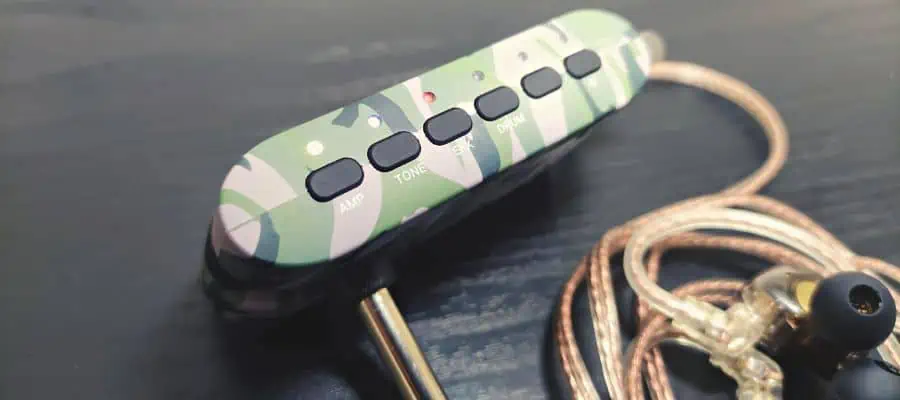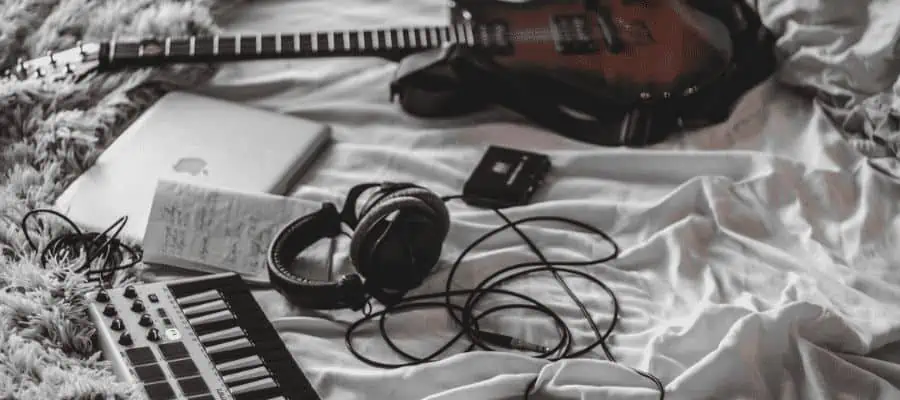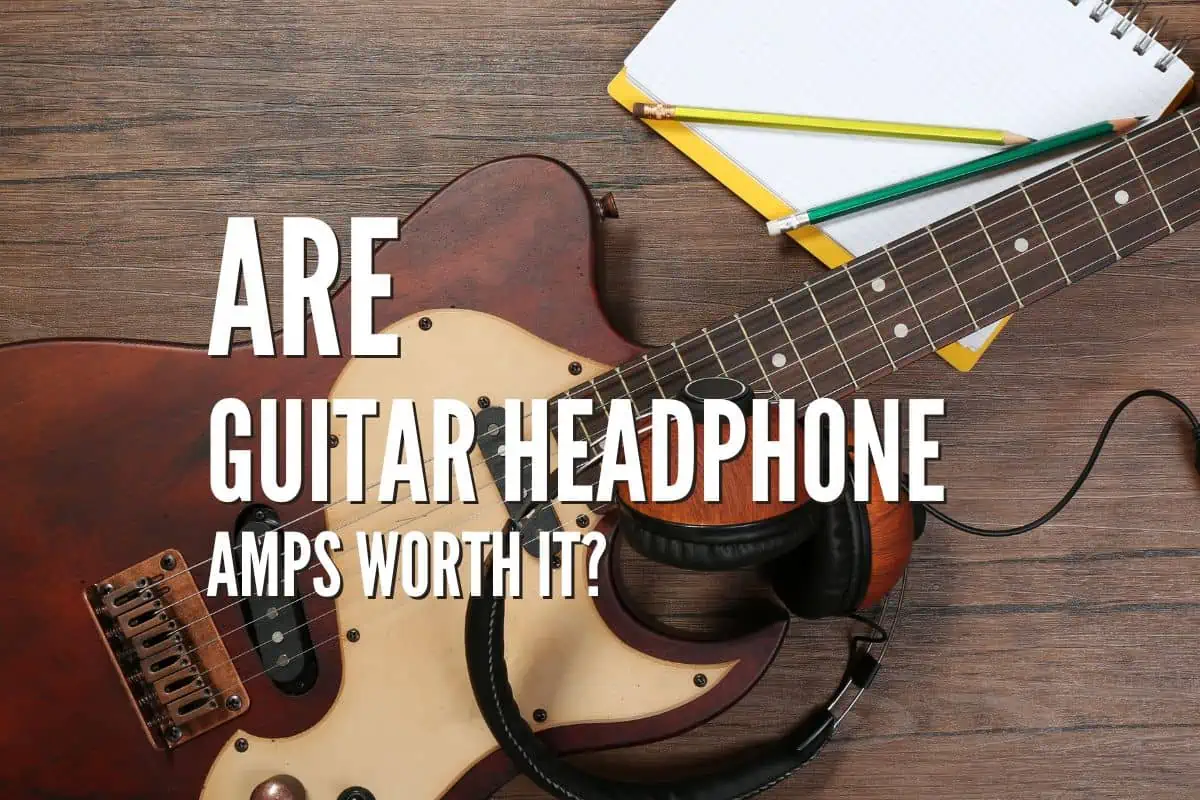Guitar headphone amps offer a practical solution for players seeking to practice without disturbing others. They are a compact and portable option that allows you to plug directly into your guitar, providing a private listening environment through your headphones. With various available models, guitar headphone amps can offer additional features such as multiple effects, amp simulation, and even recording interfaces.
Deciding the worth comes down to your practice needs, budget, and desired features. When considering a guitar headphone amp, it depends on the flexibility and convenience you’re looking for in your practice sessions. Especially useful for apartment dwellers or late-night practice, these amps can mimic the tones of classic or modern amplifiers without the associated volume. They’re also handy for warming up before a gig, traveling, or as a tool for silent recording.
If ease of use, portability, and quiet practice capabilities align with your musical lifestyle, a headphone amp might be redundant for some. But, it could be a game changer for others. The key is to evaluate your individual requirements and whether the investment will improve your playing routine and tone-seeking adventures.
What Are Guitar Headphone Amps?

Guitar headphone amps are compact devices that allow you to play electric guitar without a traditional amplifier. They are particularly useful when you must practice silently or when noise is an issue.
A guitar headphone amp is a small electronic device that directly interfaces with your guitar to deliver audio to your headphones. These amps are typically portable and provide a practical solution for playing guitar privately without disturbing others. They plug directly into your guitar output jack or connect wirelessly and often replicate the sound of a full-sized amplifier.
The Technology Behind Headphone Amps
The core of a guitar headphone amp is its signal processing. While some headphone amps have basic analog circuits for a clean tone, many use digital signal processing (DSP) to emulate the sound of different amplifiers and effects. This technology allows for multiple sounds, from classic clean channels to distorted leads, all within a device that fits in the palm of your hand.
Advantages of Using Guitar Headphone Amps

Considering if guitar headphone amps are worth the investment, it’s significant to look at their benefits. These compact devices allow for flexible practice sessions and help maintain comfortable volume levels, protecting your hearing. They can also enrich your playing with various effects and features, enhancing your experience.
Practice Anytime, Anywhere
With a guitar headphone amp, you can practice wherever you are, whether in a quiet room while others are sleeping or on a park bench during your lunch break.
Also, they are lightweight and easily transportable, making them an excellent choice for on-the-go musicians.
Volume Control and Hearing Protection
With headphone amps, you can be in charge of your volume, enabling you to play as loudly as you wish without disturbing neighbors or family members. But remember, playing at low volumes reduces the risk of hearing damage over time.
Effects and Features
Many guitar headphone amps include built-in effects such as reverb, delay, and modulation, allowing creative exploration without additional gear.
Some models offer amp modeling, providing access to various classic amp tones without owning multiple amplifiers.
Considerations for Purchasing a Headphone Amp

Choosing the right headphone amp for your guitar setup is crucial. It’s not just about being able to practice quietly; it’s also about getting satisfying sound quality, having a portable option that suits your lifestyle, ensuring it works seamlessly with your gear, and getting good value for your money.
Sound Quality and Fidelity
The first thing you’ll notice and care about is how good it sounds. Some amps offer more natural valve-like tones, which affect your playing experience. Look for models that deliver clean, rich sound and mimic larger amps’ sonic quality.
Portability and Power Options
Depending on your needs, an amp’s size and battery life can make or break its usefulness. Many models are small enough to fit your guitar case, while others require more space. Check for USB-charging capabilities, which can add convenience.
Compatibility and Connectivity
Your gear needs to work together. Ensure the headphone amp is compatible with your type of guitar and has flexible input jacks. Some allow connection to recording devices or mobile apps, giving them a versatile edge.
Budget and Value
Headphone amps range from affordable to pricy. Determine your budget and look for the best features within that. Don’t forget, a good amp should last years, so consider it an investment. More expensive doesn’t always mean better, though; sometimes, a simpler model is just what you need.
Conclusion
Deciding on a guitar headphone amp hinges on your specific needs and situation. This gear is a solid choice if you require a quiet practice solution that doesn’t sacrifice tone. They are compact, easy to use, and designed to emulate various amplifier sounds. Whether you’re a beginner seeking a budget-friendly option or a touring professional desiring high-quality effects and tones, there’s a model out there for you.
When pondering a purchase:
- Budget: Determine what you can afford.
- Tone Quality: Look for one that offers the best sound within your budget.
- Portability: Ensure it’s convenient for travel if you’re often on the move.
- Features: Decide if extra features like effects or IRs are necessary.
Remember to consider longevity and compatibility with your existing gear. A guitar headphone amp isn’t just a practical tool for silent practice—it can enrich your playing experience significantly.
If you found this article useful, you may want to save this pin below to your Guitar board.

Recent Posts
When learning new songs have you noticed that some of the chord sequences sound really good? But when you tried to come up with your own chord sequence, or as we call it chord progression, you found...
Some guitarists insist on buying an expensive amplifier with their electric guitar. They assume that this is a must for every type of guitarist out there. However, in some situations, this isn’t...

